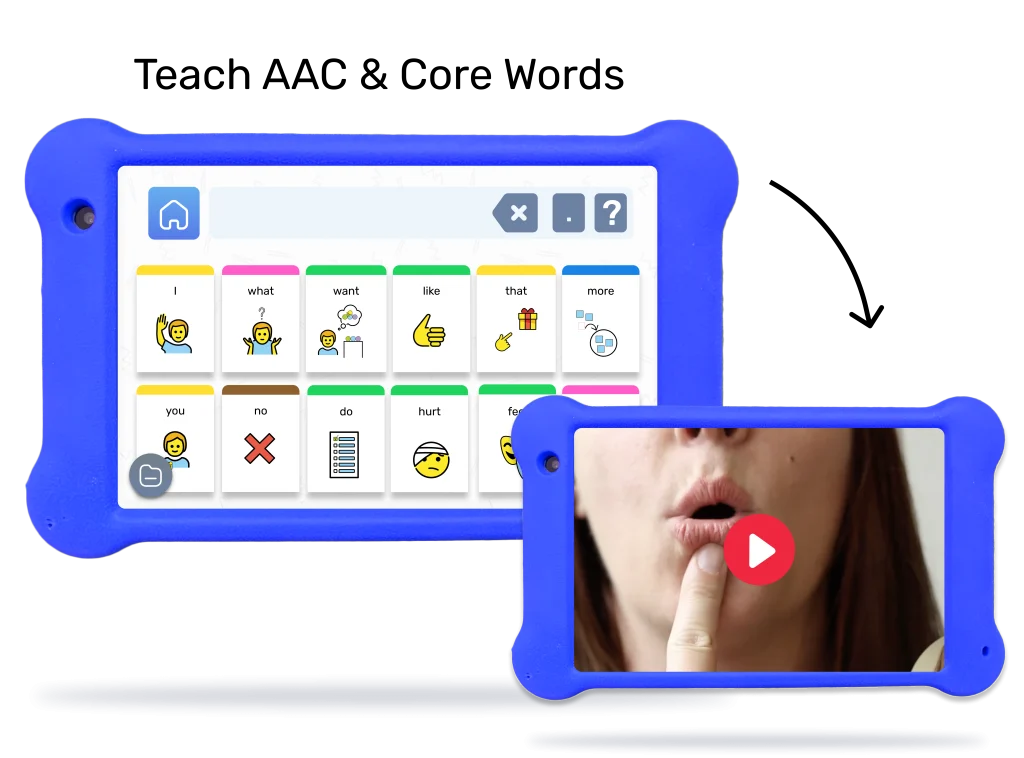Do the four-word phrases of your neighbor’s three-year-old make you wonder about your toddler’s one-word replies? Yes, every child is unique, but it may raise a few questions about speech delay. Rest easy; you’re in the right place. We’ll discuss speech delay, what you need to know, various signs to look out for, and, most importantly, what you can do as a parent. At the end of this blog, you can also use our Goally speech delay test for more insights.
Table of Contents
Understanding Speech Delay
Speech delay, in short, refers to children who aren’t developing speech and language skills at the expected age. However, it’s critical to remember that kids develop at their own pace. For instance, some children start talking and quickly pick up a broad vocabulary, while others take their time with words.
Identifying Signs of Speech Delay
- Absence of gestures: Kids with typical development use gestures around 9-12 months to communicate before they start speaking.
- No babbling: Typically, babies begin to babble around 7 months.
- Minimal verbal interaction: Kids aged 18-24 months should at least make two-word sentences.

Read more: 2-Year-Old Not Talking | When Is It Normal?
Causes of Speech Delay
There are several factors that can contribute to speech delay in kids. That is to say, these can range from hearing loss, developmental disorders like autism or ADHD, and oral impairment, to general developmental delay.
| Developmental Disorders | Description |
|---|---|
| Autism | Often identified by trouble with social interactions and communication, both verbal and non-verbal. |
| ADHD | Mainly characterized by inattention, impulsivity, and hyperactivity, which can sometimes influence social interaction and communication. |
Strategies to Nurture Speech Development
Supporting your child’s speech development is an ongoing effort, regardless of whether they display signs of delay. Here are a few strategies to help you:
- Engage in daily conversation: Your routine discussions act as fodder for their language skills. Get chatty!
- Read to your child: Regular reading exposes kids to many words, expressions, and sentence structures.
- Sing along: Nursery rhymes and songs are a melodious way to instill rhythm and language patterns.
- React positively: Actively respond to your child’s attempts at communication, fostering their confidence.
Understanding the importance of these strategies is crucial, and adopting them can support your child’s speech development in a way that makes communication enjoyable for both of you.
Read more: Does My Child Need Speech Therapy?
Role of Parents In Tackling Speech Delay
You undoubtedly play a vital role in tackling speech delay. Above all, early intervention is the key. To illustrate, your attention to your child’s development and quick response can alleviate the effects significantly. Below are some strategies that will certainly help you help your child:
- Be patient and encouraging.
- Use simple but correct language at home.
- Respond to your child’s attempts to speak.
Getting Professional Assistance
Always remember that there’s no harm in seeking professional help if you’re concerned. A pediatrician or a speech-language pathologist (SLP) can evaluate your child’s speech abilities and suggest a suitable treatment plan. In addition to this, an SLP can provide specific support, tools, and techniques to encourage your child’s speech development.

Goally | Apps that Teach Kids AAC & Core Words
Is your child facing challenges in expressing themselves or communicating effectively? Goally has one of the best language language learning apps for kids to support their journey in building essential communication skills!

The Word Lab and AAC Talker apps provide a simple, engaging platform for your child to learn core words and become a functional communicator right from the start. Customize the experience with a voice that suits them, and watch as their confidence grows in expressing their thoughts and needs!
In conclusion, it’s essential to not let worries overtake your joy at seeing your child grow. After all, every child is different and progresses at their own pace. If you suspect speech delay, arm yourself with knowledge, find support, and take the required actions. Above all, stay positive. You and your child can certainly overcome the hurdles. And remember, tools like Goally’s Skill Building Tablet can serve as effective aids in nurturing your precious one’s growth and development.

Hennah is an experienced writer and researcher, helping children with autism, ADHD, and other neurodivergent conditions. As a blog contributor for Goally, she combines her deep understanding of neurodiversity with practical advice, offering valuable insights to parents and educators.






